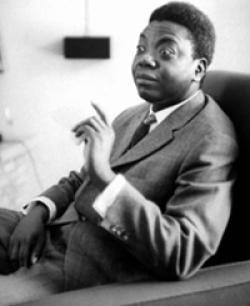
Published date
23 December 1961
Following the independence of Congo in June 1960 from Belgium, MoÁ¯se Kapenda Tshombe led the Congo province of Katanga into secession on 23 December 1961. Tshombe was born in 1919 in the southern region of Katanga. His father was said to be the first Congolese millionaire, amassing a fortune through a variety of business ventures. Tshombe announced Katanga's secession from Congo, explaining that Katanga's abundance in natural minerals of copper, gold, and uranium would be exploited by the newly-formed Congolese government. Katanga's secession was supported by most White settlers in the province who would benefit the most from continued control of the region's resources. Tshombe also received support from Western leaders including then U.S. Vice President Richard Nixon, who praised Tshombe as a pro-West advocate and staunch anti-Communist Christian. However, after Tshombe's soldiers brutally executed the Congo's first Prime Minister, Patrice Lumumba, in January 1961, the United Nations and the United States ended their support of Katanga's secession from Congo. In December of 1962, the United Nations sent troops to battle Tshombe's soldiers and the hundreds of mercenaries his regime had hired. In early January 1963, Elisabethville was captured by U.N. troops and Congolese soldiers. Tshombe fled to neighbouring Kolwezi and then quickly surrendered within weeks. On 30 June 1967, a plane he was travelling in got hijacked and Tshombe was taken to Algeria where he remained until his death on 29 June 1969.
References
Boddy-Evans A. (2011). ‘This Day in African History: 23 December’, from About.com:African History [online]. Available at www.africanhistory.about.com [Accessed: 21 November 2011]|Yoo, J.A (2011). ‘Tshombe, Moïse Kapenda (1919”“1969)’from Black Past [online]. Available at www.blackpast.org [Accessed: 21 November 2011]|Encyclopaedia Britannica (2001). ‘Moise Tshombe’ from Encyclopaedia Britannica [online]. Available at www.britannica.com [Accessed 22 November 2011]